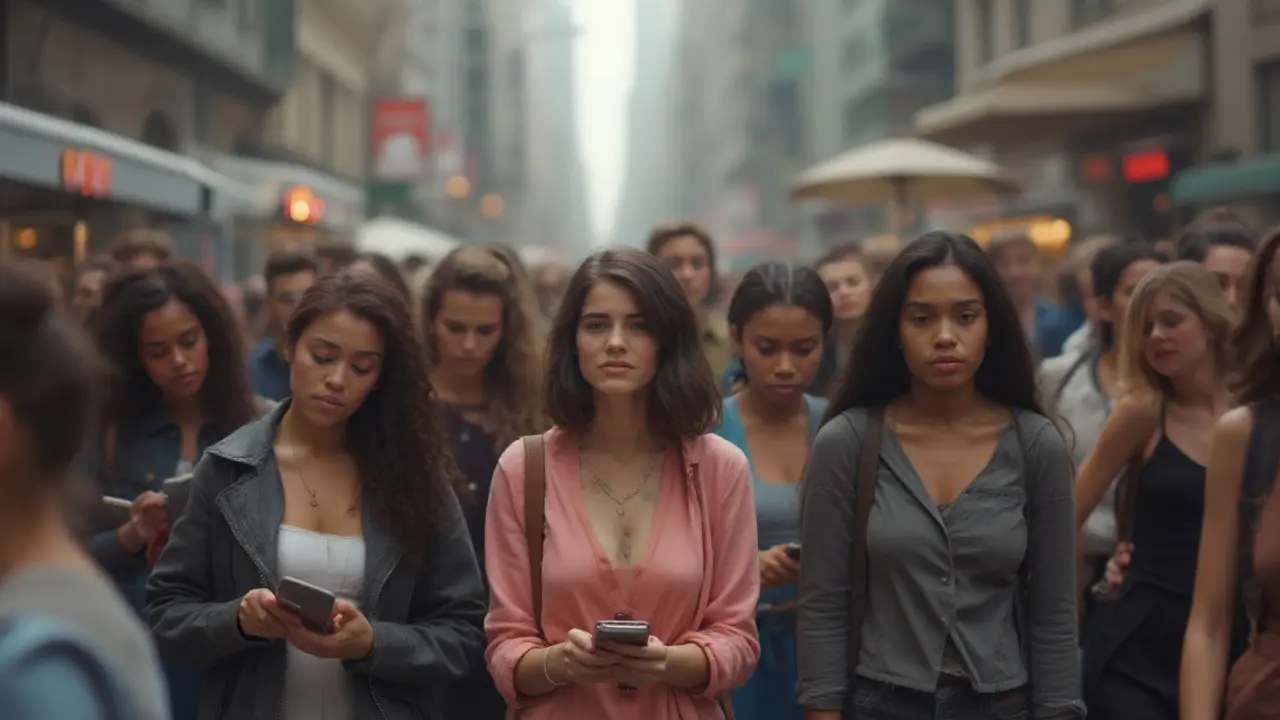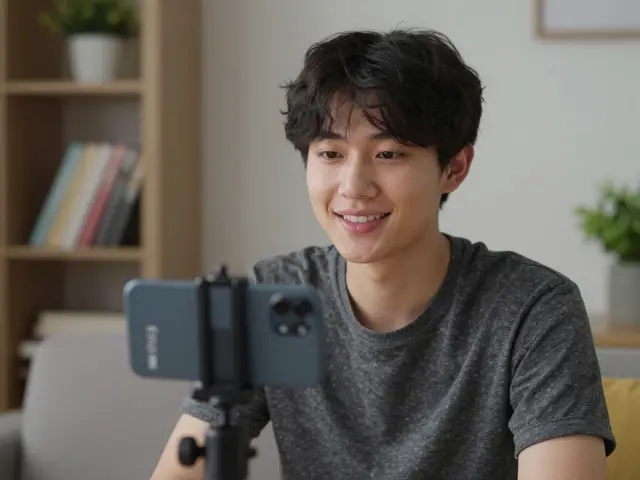
Ever swipe through yet another dating app and wonder if it’s all just a bad joke? For so many women, the quest for a real partner feels less like a rom-com and more like a marathon. The so-called "freedom" of being single in 2025 should come with a warning: You might gain independence, but love? Turns out that's the trickier part. This isn't just in your head, either—recent 2024 statistics from Pew Research found nearly 46% of single women in the US report they're seriously struggling to meet suitable partners. That's not because they’re too picky or aren’t trying; the dating game has changed in ways our mothers never imagined. Let's break down exactly what’s making it hard and talk about what you can actually do about it.
Understanding the Real Challenges Single Women Face
Online dating promised to make things easier, but if you're a single woman searching for someone genuinely compatible, you know it often feels like the opposite. First, there’s sheer overload—endless swiping, confusing signals, ghosting, even catfishing. Research from Stanford in early 2025 shows that while 70% of women aged 25-40 have tried dating apps, only 11% reported finding a relationship that lasted more than six months this way. It’s not just about quantity, but quality too.
The shallow nature of online matching means people can stay on the surface, never really investing. And then there's the paradox of choice: with so many options, both men and women report being pickier or hesitant to commit. Single women, in particular, face an extra twist. Studies (Harvard, 2023) show that women with higher education or stable careers often find the dating pool shrinks—many men feel intimidated or worry about role reversals, compounding frustrations. On top of that, cultural scripts still pressure women to "wait" for initiations or "compromise" their standards.
Let's not forget the emotional impact. Being single can mean dealing with nosy family, subtle shaming, or just the ache of loneliness when friends pair off. The myth that single women are simply too demanding still floats around, despite clear evidence that women today are just looking for basic decency, stability, shared values, and fun. Layer in worries about time (especially for those keen on starting families), and it’s no wonder many feel anxious and stuck.
Take financial independence—often a double-edged sword. It gives women freedom but sometimes attracts partners more interested in resources than relationships. Single moms face additional hurdles, juggling childcare with dating in an already tight market. For women who identify as LGBTQ+, the challenges multiply further: exclusion, limited dating pools, and sometimes safety concerns.
Of course, not every story is bleak. Social changes, like women prioritizing self-growth, therapy, and friendship, are making solo life richer. But wishing for connection is still valid. The bottom line? No, you’re not alone, and there’s nothing wrong with raising your standards—just be prepared to navigate a maze that’s trickier than ever before.
The Impact of Modern Dating Trends
So, what’s new about dating in 2025? Let’s start with the role of technology. Screens now mediate almost every introduction outside one's tight-knit circle, and "digital fatigue" is real. According to Match.com’s 2025 annual Singles in America study, 63% of single women report feeling burned out—or even cynical—about dating app culture. That’s not so surprising when you notice how superficial things can get. Fast first impressions often overshadow deeper compatibility, leaving women with dozens of conversations that fizzle instantly.
Ghosting remains a huge issue: About 54% of women in a recent Hinge survey admitted they'd been ghosted in the past year, up from 38% in 2022. Even worse? The "breadcrumbing" trend—where someone gives just enough attention to keep you hanging on—causes confusion and frustration. There's also the constant balancing act between oversharing (to seem "open") and holding back (to avoid vulnerability with strangers), which can leave women second-guessing every text.
The pandemic changed things, too. The lockdowns of 2020–2021 accelerated how relationships form online, but they've also made social skills rusty. In-person meet-cutes now feel awkward, with many reporting social anxiety when finally meeting a match face-to-face. There’s also what some psychologists call "relationship scarcity"—with fewer spontaneous social events, it's harder to just stumble upon new people.
Some trends are positive: More single women openly demand respectful, equal partnerships. A 2024 Bumble poll found 72% of women consider mental health and emotional intelligence absolute musts—traits that were rarely on anyone’s radar a decade ago. Expectations have shifted from "just settle down" to "grow with me." Not everyone’s keeping up, though. There’s still plenty of stigma around women taking initiative or showing ambition, particularly in regions tied to more traditional roles.
Then there are the statistics around commitment. While women remain open to meaningful relationships, nearly 40% of men between 28 and 40 in a 2025 YouGov survey said they "aren't actively looking" for a committed partnership. This "commitment-phobia" can make the process even more maddening—especially when genuine effort is met with indecision or game-playing.
If it all sounds daunting, it’s not your imagination—finding a truly compatible match in the modern era takes more than just luck or being in the right place at the right time.

Practical Ways to Boost Your Chances
If dating apps are starting to feel like a full-time job, you’re not alone. But there are smarter ways to approach the search that don’t involve endless scrolling.
- Single women who connect through explicit interest-based communities—think co-ed sports leagues, niche hobby meet-ups, volunteer projects—report much higher satisfaction than those relying solely on apps (Friendship Study, 2024).
- Get proactive: Invite friends to fix you up. Instead of dodging office happy hours, say yes. Expanding your social events by just one or two a month can dramatically up your odds (recent Meetup.com data says 28% of new couples first met at group events, not online).
- Work on that mindset. Therapists recommend a shift from "seeking validation" to "curiosity": treat each new connection as a way to learn, not a verdict on your worth. According to cognitive behavioral coaches, this mindset reduces dating-related anxiety by half and builds resilience against rejection.
- Don’t be afraid to make the first move. Women who initiate chat, ask questions, or suggest in-person meetings report a 22% higher chance of sparking actual dates versus those who wait (OkCupid, 2024).
- Protect your time and emotional energy. Block off open-ended texting—move the chat offline after a few exchanges, or drop it. This minimizes emotional exhaustion, according to relationship counselors.
- If loneliness creeps in, channel it into something productive. Take up free online classes, join a running group, or start a new creative project—these increase confidence and often expand your social network.
- Be upfront with what you want. Yes, some people will bow out, but that's a time-saver. Clarity at the start prevents disappointment later.
- Regularly update your approach. If you’re not seeing results after a few months, consider refreshing your profile, changing your hangouts, or talking to a dating coach. Small tweaks can make a difference.
- Reframe your thinking about age and timing. It’s okay if your timeline looks different than others'; recent CDC stats show women having healthy children well into their late 30s and early 40s. The "biological clock" panic is less of a deadline than it's made out to be.
Building resilience isn’t just about toughing it out alone. Surround yourself with supportive friends who encourage rather than compete. And yeah, sometimes put dating on pause. Focusing on friendships and personal happiness often brings unexpected introductions and makes the whole search feel less draining.
Self-Care and Staying Empowered Through the Wait
When the search for a partner gets tiring, self-care isn't just bubble baths—it's setting boundaries, learning to say no, and challenging toxic ideas about what "success" looks like. Look after your body and mind—physical activity and group hobbies can ease the sense of isolation.
A 2025 survey by Psychology Today found that single women who practice at least two self-care routines weekly (think yoga or journaling) are three times more likely to report high confidence and "dating joy." Why does this matter? Because the most magnetic energy is self-assuredness: it’s the difference between coming across as "needy" versus "genuinely interested."
Don’t underestimate therapy, coaching, or even just a vent session with your best friend. Processing disappointments helps you stay open to new experiences instead of shutting down after setbacks. Stay off social media on your harder days—the comparison trap is real. The only timeline that matters is yours.
Don’t let fear of "missing out" push you toward toxic matches or halfhearted situationships. Listen to your gut. Prioritize red flags over butterflies—safety and long-term respect should come first. Invest in mini-celebrations: treat your wins, whether it’s acing a tough week alone, traveling solo, or just cooking dinner for yourself.
If you’re tempted to settle for "good enough," pause and ask yourself if it’s about the person or just fear of being alone. At the same time, let yourself be surprised. Sometimes, love comes from unexpected places—a new coworker, a mutual friend you never noticed, or even a hobby you picked up out of boredom.
| Activity | Reported Boost in Happiness (%) |
|---|---|
| Joining new group classes | 41 |
| Traveling solo | 39 |
| Learning a new skill | 47 |
| Weekly exercise | 52 |
| Time with close friends | 56 |
Remember, staying empowered doesn’t just mean "powering through." Sometimes, it’s about slowing down, reassessing, and redirecting energy toward the life you’re already building.

What’s Working for Real Women Right Now
Advice is great, but what are women actually doing that helps? The answer isn’t flashy—it’s honest, consistent effort and a dose of humor.
Emily, 35, stopped prioritizing "the list" and focused on curiosity; she found her current partner while dog-walking in her neighborhood, after a year off the apps. Maria, 39, joined a hiking group just to make friends and unexpectedly met someone with shared values. Tasha, 31, worked with a therapist to tackle negative patterns and is now dating with more confidence instead of old fears.
One of the most helpful shifts is controlling the narrative. Instead of "finding someone eventually," reframe as "building a life I love now, with or without a partner." Women report more satisfaction when they choose to see dating as one part of a full life, rather than the end goal itself.
Lean into authenticity, even if it feels scary or vulnerable. Friends say you’re "too much"? Embrace it—someone else will see it as "just right." Don’t let social pressure trick you into downplaying your goals, quirks, or boundaries. If societal scripts say women should be shy about messaging first, ignore it. If your career, hobbies, or solo travels "intimidate" matches, let them weed themselves out early.
Try this exercise: Write out the qualities you love most about your single life. Then, figure out which of those you want in a partnership (not which ones you’d give up). Once you start seeing dating as an addition—not a fix—the entire process feels lighter.
And maybe the best tip? Have fun with it. Laugh at the bad dates, swap war stories with other single friends, and keep your heart open for surprises. Real connection doesn’t just happen to those with perfect timing or routines—it usually shows up for those who keep living, learning, and loving themselves along the way.









